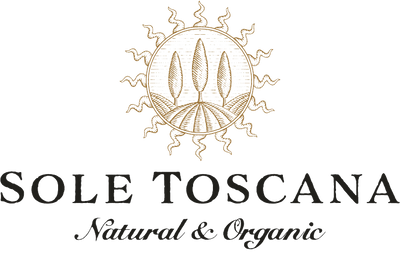It’s easy to underestimate cleansers. After all, they’re on our skin for less than a minute before we rinse them away. But even in that short time, a cleanser can either support your skin’s health or strip it of essential oils and leave lasting effects.
As we age, the cleanser we used in our 20s often no longer serves us in our 50s and beyond. Years of exposure to harsh products can take their toll, showing up as dryness, dullness, or sensitivity. Choosing a quality cleanser becomes one of the most important steps in your skincare routine—not just to cleanse, but also to prepare your skin to fully receive the benefits of the products that follow.
Unfortunately, many popular cleansers do more harm than good. Let’s look at what makes a facial cleanser right for mature skin.
Understand the Importance of pH Balance
Your skin naturally thrives in a slightly acidic environment, around a pH of 5.5. This delicate balance supports your skin barrier, keeping it hydrated, resilient, and well-defended against stressors.
When cleansers are too alkaline (with pH levels closer to 9–12, as most soaps are), they disrupt this balance. The result? Tightness, dryness, irritation, and a greater tendency toward fine lines and dullness. On the other hand, overly acidic products can lead to redness, sensitivity, or breakouts.
The key is finding a cleanser that cleans thoroughly while respecting your skin’s natural pH.
Spot the Signs of Imbalance
If your cleanser isn’t working with your skin’s natural balance, you’ll likely notice:
Too Acidic:
- Oily, greasy skin after cleansing
- Frequent redness or irritation
- A sensation of sensitivity with most products
Too Alkaline:
- Skin feels tight and dry after washing
- Rough, flaky patches
- The need to reapply moisturizer often
- A lack of natural dewiness
Paying attention to these signs helps you determine whether your cleanser is supporting—or disrupting—your skin health.
Know Which Ingredients to Avoid
Some ingredients are known to upset the skin’s balance, especially for mature skin:
-
Sodium laureth sulfate (SLES) and sodium lauryl sulfate (SLS): Common foaming agents that are too harsh and drying.
-
Strong acids (AHAs, fruit acids): Beneficial in moderation, but too frequent use in cleansers can weaken the skin barrier.
-
Triclosan: Once popular for its antibacterial properties, now linked to irritation, hormone disruption, and environmental harm.
Instead, look for cleansers with gentle, plant-based surfactants and naturally balancing ingredients that respect your skin’s barrier.
Pay Attention to Your Skin
Labels matter, but your skin’s response is the ultimate guide. If it feels irritated, tight, or excessively oily, your cleanser may not be the right match. When trying a new product, give your skin a few weeks to adjust. After years of harsher products, it takes time for the barrier to restore its natural balance.
Rather than choosing a cleanser based on whether your skin feels dry or oily, start with one that is well-balanced and nourishing. This sets the stage for your other skincare products to work more effectively.
Why We Recommend Sole Toscana’s Rosewater Wellspring Cleanser
 At Sole Toscana, we believe your cleanser should leave your skin feeling refreshed—not stripped. Our Rosewater Wellspring Cleanser is crafted with organic plant ingredients that cleanse while maintaining your skin’s natural moisture.
At Sole Toscana, we believe your cleanser should leave your skin feeling refreshed—not stripped. Our Rosewater Wellspring Cleanser is crafted with organic plant ingredients that cleanse while maintaining your skin’s natural moisture.
Infused with rosewater and rosehip, it acts as a 2-in-1 cleanser and toner, simplifying your routine by balancing and hydrating while it cleans. All mature skin types are loving the results. In addition to cleansing, the formula includes protective antioxidants and natural moisturizers, designed especially with mature skin in mind.
With consistent use, you’ll notice softer, healthier skin that’s properly prepared for the rest of your skincare regimen.


